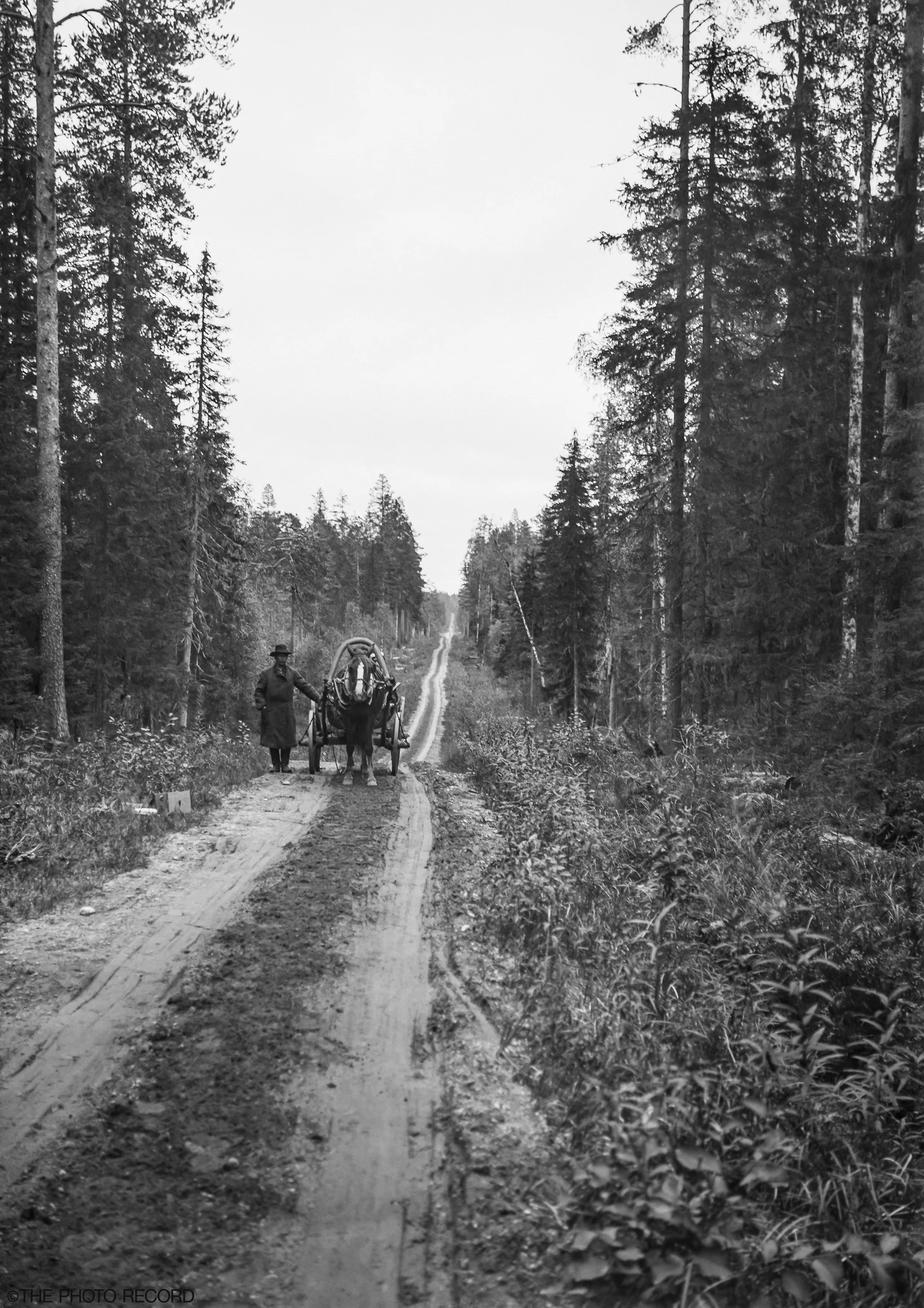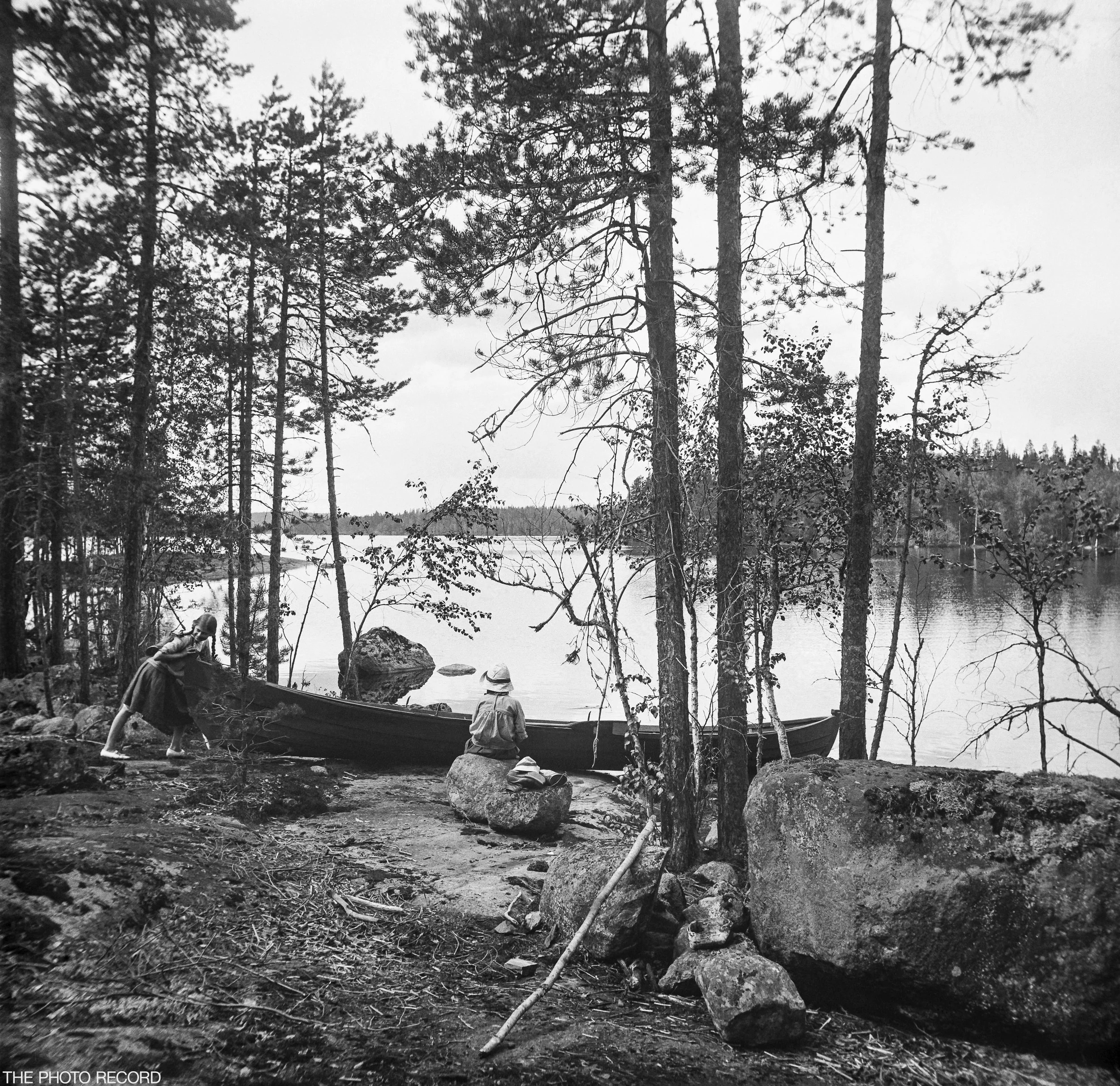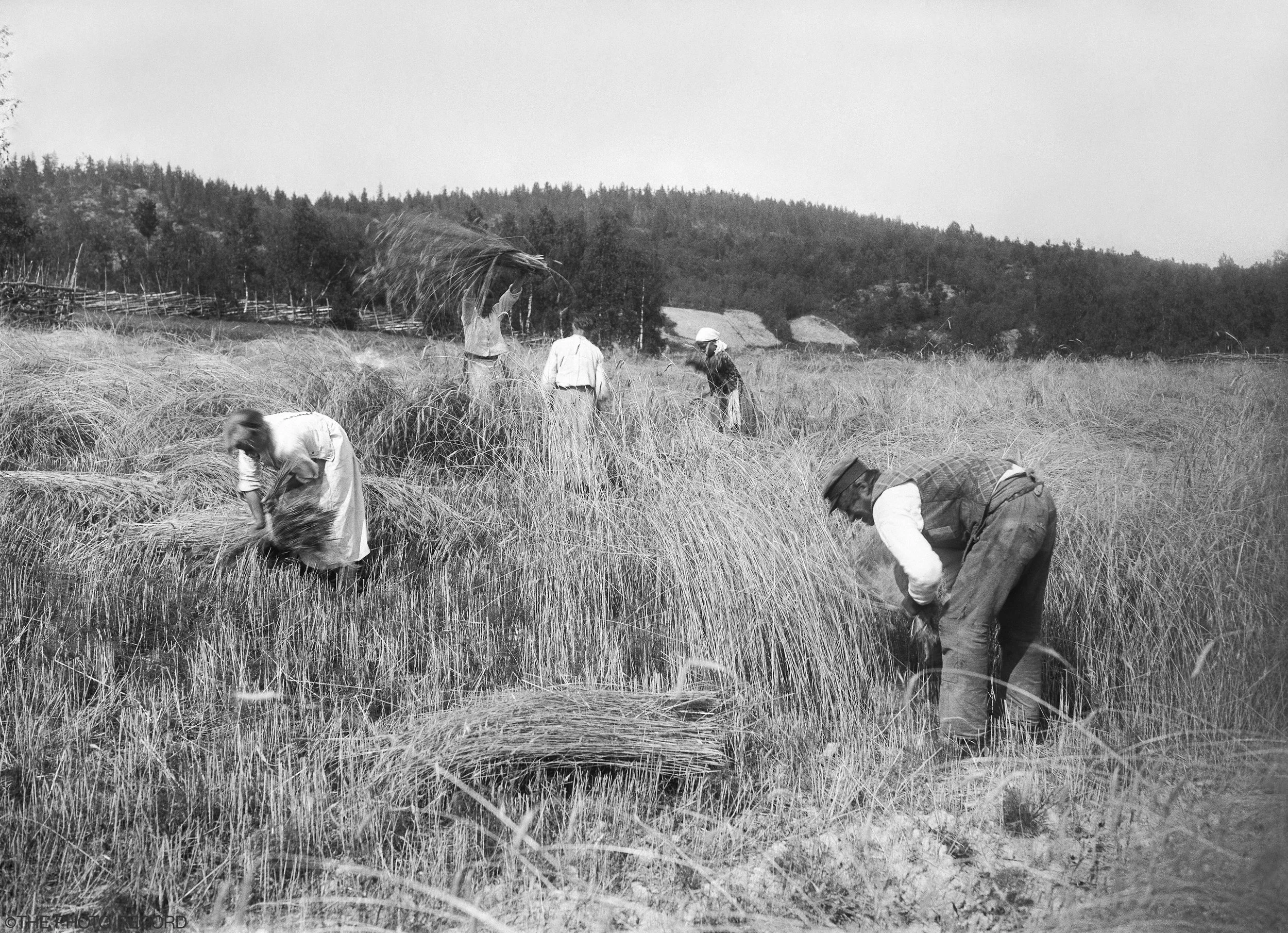Forest Road in Karjala
In the late 1800s, Karjala, in southeastern Finland, thrived as an agricultural heartland deeply rooted in its natural surroundings. The region's fertile soil supported a variety of crops crucial for local sustenance and trade, while its dense forests provided timber and fuel for the community's needs. Karjala's landscapes, characterized by rolling hills and pristine lakes, shaped the daily lives of its inhabitants.
In the complex historical context, Karjala's fate shifted between Finnish and Russian control over the centuries. Initially part of the Russian Empire during the late 1800s, the region later became part of independent Finland. However, large parts of Karjala were ceded back to the Soviet Union following World War II, marking a significant geopolitical shift that continues to influence its governance and cultural dynamics to this day. During these tumultuous times, many Finns were displaced from Karjala, leaving behind a piece of their heritage and culture, which remains a poignant part of Karelian identity.
Photo: A man with a horse and cart navigating a forest road in Karjala, offering a glimpse into the region's rural life and the challenges faced by its residents during the late 19th century.
Original Photograph
Click image to enlarge
Digitally Restored Photograph
Click image to enlarge
Photo Information
Original photo courtesy of the Finnish Heritage Agency
Photographer: Unknown
Year: 1890
Link to original photo here
Copyright 2024 The Photo Record. All rights reserved. All digitally restored photographs and contents of this article may not be reproduced or used in any manner whatsoever without the express written permission of the owner.





